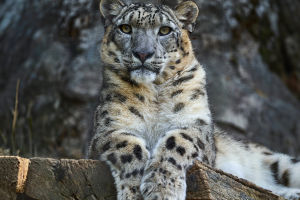The image of a koala clinging to a tree may seem simply endearing, but new research reveals a critical function behind this behavior: thermoregulation.
According to a study led by ecologist Dr. Michael Kearney of the University of Melbourne, koalas hug tree trunks to stay cool during extreme heat, potentially aiding their survival as Australia's climate becomes hotter and drier.
Tree-Hugging Behavior Explained
Koalas, native to Australia’s woodlands, are commonly seen clinging to trees, which many had previously assumed was merely a resting position. However, during a study conducted on French Island near Melbourne, researchers noticed a consistent pattern: koalas were frequently found hugging the lower parts of tree trunks, particularly during hot weather.
Dr. Kearney and his doctoral student, Natalie Briscoe, were investigating how koalas regulate body temperature in a warming climate. While initial tests measuring wind and shade showed little significance, infrared thermometers revealed a surprising detail—tree trunks, particularly those of acacia trees, were significantly cooler than the surrounding air, sometimes by as much as 9°F (5°C). Interestingly, the koalas were hugging trees they typically do not eat from, suggesting the choice was based on cooling needs rather than diet.
Energy and Water Conservation
Koalas usually cool themselves by panting, a process that consumes water. However, hugging cool tree trunks allows them to reduce the amount of heat they must expel through panting, thereby conserving water—a valuable resource since koalas primarily obtain hydration from eucalyptus leaves, which contain toxic compounds that limit how much they can consume.
When the research team modeled heat transfer in koalas, they found that hugging tree trunks could reduce the water needed for cooling by half. This method of thermoregulation may be vital during extreme heat events, helping koalas avoid dehydration.
Climate Change and Koala Habitat Planning
This discovery has significant implications for conservation planning. Wildlife researcher Bill Ellis from the University of Queensland, who was not involved in the study, noted that tree-hugging might influence how koala habitats are managed in the future. He emphasized that in addition to planting eucalyptus trees for food, conservation efforts should consider planting trees that provide thermal refuge, even if they are non-native.
In the more humid northern regions of Australia, where evaporative cooling (like panting) is less effective, the role of tree-hugging could be even more critical. Understanding how koalas manage heat in different climates will help shape effective strategies to protect them in the face of global warming.
Researchers have discovered that koalas hug tree trunks to cool down during hot weather. Tree trunks, especially those of acacia trees, can be significantly cooler than the surrounding air, offering koalas a passive way to regulate body temperature and conserve water. This behavior is crucial during heatwaves and may influence future habitat management, suggesting that trees providing thermal shelter are as important as food sources in koala conservation efforts.


